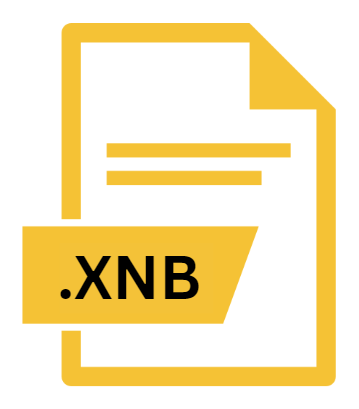.XNB File Extension

XNA Game Studio Binary Package
| Developer | Microsoft |
| Popularity | |
| Category | Game Files |
| Format | .XNB |
| Cross Platform | Update Soon |
What is an XNB file?
.XNB file extension primarily serves as a container format used by XNA Game Studio to store various types of game-related content.
These files are binary packages designed to encapsulate assets such as textures, audio files, fonts, and other game resources in a format optimized for runtime performance and ease of deployment.
More Information.
Launched as an initiative to simplify game development across Microsoft platforms, XNA Game Studio leveraged .XNB files to streamline the process of packaging and deploying game assets.
By compiling assets into a binary format, XNA optimized load times and runtime performance, crucial for delivering smooth gameplay experiences on various devices.
Origin Of This File.
.XNB files originated with Microsoft’s XNA (XNA’s Not Acronymed) framework, initially released in 2004.
XNA aimed to democratize game development by providing a unified platform and set of tools for aspiring game developers.
The framework gained popularity due to its simplicity, flexibility, and integration with Microsoft’s development ecosystem, including Visual Studio.
File Structure Technical Specification.
.XNB files are structured to accommodate different types of assets commonly used in game development:
- Binary Format: The contents of .XNB files are typically serialized into a binary format to ensure efficient storage and rapid deserialization during runtime.
- Header Information: Each .XNB file begins with a header that includes metadata such as asset type, size, and other relevant information needed for parsing and loading the asset.
- Content Compression: Optionally, .XNB files may employ compression techniques to reduce file size and improve loading times, especially beneficial for large textures and audio files.
- Platform Independence: While primarily associated with Windows-based platforms, XNA Game Studio allowed developers to target Xbox 360 and Windows Phone, ensuring .XNB files remained portable across these environments.
How to Convert the File?
Converting .XNB files typically involve reversing the serialization process used during compilation:
- Extracting Content: Tools like XNA Content Compiler or custom scripts can extract assets from .XNB files back into editable formats like PNG for textures or WAV for audio.
- Recompiling: After making changes, assets can be recompiled into .XNB format using XNA Game Studio’s content pipeline or alternative tools designed to replicate this functionality.
Advantages And Disadvantages.
Advantages:
- Optimized Performance: .XNB files are optimized for fast loading and runtime efficiency, essential for real-time applications like games.
- Platform Compatibility: They ensure cross-platform compatibility within the Microsoft ecosystem, facilitating deployment on Windows, Xbox, and Windows Phone.
- Asset Protection: By compiling assets into a binary format, .XNB files offer a level of protection against unauthorized modification or tampering.
Disadvantages:
- Lack of Transparency: Binary formats are not human-readable, making it challenging to inspect or modify assets without access to the original source files.
- Tool Dependence: Developers relying on .XNB files are dependent on XNA Game Studio or compatible tools for asset creation and manipulation.
How to Open XNB?
Open In Windows
- XNA Game Studio: .XNB files are designed to be used directly within XNA Game Studio for game development. Simply open the project in XNA Game Studio, and the assets contained in .XNB format will be accessible for editing and deployment.
- Third-Party Tools: There are some third-party tools available that can extract or view .XNB files on Windows. These tools may vary in functionality and ease of use, so it’s recommended to research and choose a tool that suits your specific needs.
Open In Linux
- MonoGame: MonoGame is an open-source implementation of the Microsoft XNA 4 Framework. It supports Linux and can load .XNB files created with XNA Game Studio. You would typically need to compile your game project with MonoGame on Windows or another supported platform and then run the compiled executable on Linux.
- Reverse-Engineering Tools: Some developers have created tools to reverse-engineer .XNB files or extract assets from them. These tools may not provide full functionality but can sometimes be used to access assets in a limited capacity.
Open In MAC
- MonoGame: MonoGame also supports macOS, allowing you to compile and run XNA-based games on Apple’s operating system. This involves compiling your project with MonoGame on a compatible platform and then running the executable on macOS.
- Third-Party Tools: As with Windows and Linux, there may be third-party tools or scripts that can partially read or extract assets from .XNB files. These tools are typically not as comprehensive as using the original XNA Game Studio environment.
Open In Android
- MonoGame: Develop your game using MonoGame, ensuring it supports Android as a target platform. Compile your project with MonoGame for Android and deploy the resulting APK (Android Package) to Android devices.
- Integration with Android Studio: If integrating with Android Studio or developing Android-specific features, you would follow standard practices for integrating assets into Android projects. .XNB files would be included within the assets or resources of your Android project, compiled into the APK during the build process.
Open In IOS
- MonoGame: Develop your game using MonoGame, ensuring it supports iOS as a target platform. Compile your project with MonoGame for iOS and deploy the resulting IPA (iOS App Package) to iOS devices.
- iOS Development Environment: For integrating .XNB files into iOS applications, you would include them as part of your iOS project’s assets. During the build process with tools like Xcode and MonoGame, assets are packaged into the IPA for deployment to iOS devices.













